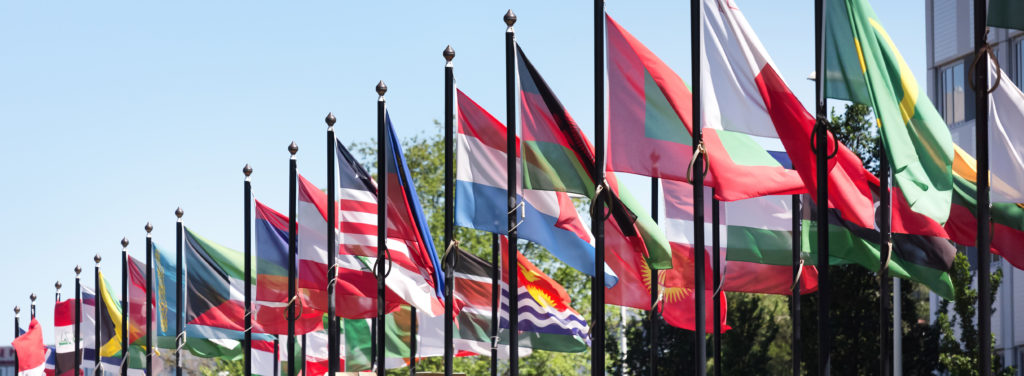What Role Can Global Agreements Play?
Plastic pollution is a complex problem. It’s also a global one. Our Plastics Initiative work requires participation in international fora across topics including the full life cycle of plastics, the effect of micro and nanoplastics, the treatment of human waste pickers, the transportation of hazardous materials, and various import and export regulations. We work to pursue the priorities of environmental and human health, social justice and redesign in the following frameworks:
Global Treaty on Plastic Pollution
The mandate that was negotiated at UNEA provides the foundation to tackle the complex issue of plastic pollution. As the global community prepares for the first formal negotiation meeting in Fall 2022, we are hopeful that Member States will carry forward the original intent and spirit of the mandate from UNEA5.2 in February 2022:
Support from All Member States:
Governments agreed on the need for a legally binding instrument that takes a comprehensive approach to address the full lifecycle of plastics.
Microplastics as Plastic Pollution:
The mandate recognizes that plastic pollution includes microplastics.
Nationally Defined Plans:
The mandate has a provision that promotes the development of national actions plans that work towards the prevention, reduction and elimination of plastic pollution. This step is critical to ensure the development of actions and solutions that will be based on national circumstances to truly have a positive effect.
Inclusivity:
To allow the treaty to be a successful legal framework that meets multiple objectives, inclusion is critical. The mandate recognizes the significant contribution of workers in the informal and cooperative sectors (20 million people around the world work as waste pickers) and includes a mechanism for related financial and technical assistance to developing countries.
Sustainable Production, Consumption, and Design:
Promotion of sustainable production and consumption of plastics, including product design.

In Case You Missed it: A Global Treaty to Curb Plastic Pollution
The Biggest Environmental Agreement Since Paris
Basel Convention on the Control of Transboundary Movements of Hazardous Wastes and Their Disposal
The Basel Convention on the Control of Transboundary Movements of Hazardous Wastes and Their Disposal (Basel Convention was created to stop the transport of hazardous waste from developed countries to developing countries that practice unsafe working conditions and severely underpay their workers. In 2019, the Conference of the Parties to the Basel convention made the decision to address plastic waste. One result of this decision was the creation of the Partnership on Plastic Waste. The Ocean Foundation recently became accredited as an Observer and will continue to be engaged in international action regarding plastic waste.



